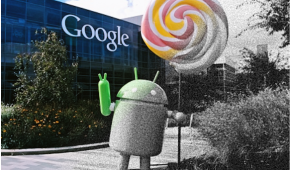Goodbye Android Rumors that Samsung will switch from Android to fuchsia OS in the future

Almost all terminals in the "Galaxy" series of smartphones, which have the largest share in the world manufactured and sold by Samsung Electronics, are running Android customized by Samsung. However, it seems that Samsung may switch to a new OS in the future.
Leaker Dohyun Kim tweeted on his Twitter that Samsung is leaving Android. There is a possibility of migrating to an OS called "Fuchsia" in the future. In addition, the famous leaker Ice universe also responded "Yes" to this post, which seems to be more credible information.
The correct reading of this OS in Japanese is unknown. It seems to read "fuchsia" in English pronunciation and "fuchsia" or "fuchsia" in Japanese. In the Japanese notation in this article, it is provisionally unified to "Fuchsia", which is the easiest to write.
Overview of "Fuchsia"
The history of Fuchsia OS goes back about five years and begins with Google's announcement on GitHub as a new project in 2016.
At the time of release, Google did not officially announce it, so it is predicted that many media will replace Android in the future . Subsequent investigations revealed that the OS can work on a wide range of devices, including smartphones, tablets, PCs, and embedded devices such as home appliances.
Fuchsia app development kit "Flutter"
Google's Flutter software development kit (SDK) is used to develop Fuchsia apps. The best feature of this Flutter is that it is a program written in one language, and it is possible to develop applications compatible with different OS such as iOS and Android .
There are two types of mobile application development today, one is native development and the other is cross-platform development. In native development, we develop apps in languages optimized for iOS and Android environments, and recently, languages such as Swift for iOS and Kotlin for Android are often used. Therefore, to develop both iOS and Android apps natively, you need to learn two languages. On the other hand, in cross-platform development, it is possible to create apps compatible with both OSs in one language. Flutter is an SDK for the latter class platform development.
Therefore, with Flutter, you can develop applications that can be used on many devices with just one "Dart" language. Focusing solely on cross-platform development, it's no exaggeration to say that Flutter is currently the most used. In fact, Google Search seems to have more searches for Flutter than other cross-platform development-enabled SDKs.
Post a Comment